- All
- A-D
- Aluminium Homeware
- Animal & Bird Figures
- Aprons
- Baskets & Buckets
- Bathroom Accessories
- Bird/Bug Houses/Feeders
- Body & Hair Care
- Bookends
- Bracelets & Bangles
- Bread Warmers
- Buddhas & Ganeshas
- Bunting & Prayer Flags
- Ceramic Tableware
- Children's Bags and Purses
- Children's Hangings
- Children's Educational Games
- Chocolate
- Christmas Products
- Cleaning & Laundry
- Coasters & Trivets
- Combs, Brushes, Toothbrushes
- Copper Bottles, Cups, Jugs
- Crystal / Gemstone Trees
- Cushions & Covers
- Decorative Hangings
- Decorative Storage
- Desk Accessories
- Diffusers
- Display Stands (empty)
- Display Stands & Boxes (pre-filled)
- Dreamcatchers
- Dresses, Skirts & Trousers
- Duck It! - Wooden Ducks
- E-K
- Earrings
- Eco Soft Toys
- Explorer Range
- Face Masks
- Fans
- Fashion Bags & Purses
- Finger Puppets
- Fragrance Oils
- Furniture (small)
- Games & Puzzles
- Garden Ornaments
- Gemstone Jewellery
- GENKI Upcycled Clothing
- Gift Bags & Wrap
- Glass Hangings
- Glassware
- Greetings Cards
- Hair Accessories
- Hammocks and Swings
- Incense
- Incense Holders & Boxes
- Incense/Candle Gift Sets
- Inspirational Banners / Hangings
- Jewellery
- Jewellery Storage
- Jute Bags
- Keyrings
- Kitchen & Dining
- L-P
- Lanterns & :Lampshades
- Let's Boogie! - Metal Animals
- Magnets
- Masks
- Massagers
- Men's Jewellery
- Metalacycle - Metal Plaques
- Mirrors
- Models & Small Ornaments
- Molten Glass Homeware
- Moneyboxes
- Mosaic Bowls and Plates
- Musical Instruments
- Necklaces
- Notebooks
- Oil Burners
- Painted Candles
- Paper Hangings
- Papier Mache Decor from Kashmir
- Pebbles & Paperweights
- Pencils
- Perfume & Scented Bracelets
- Photo Frames
- Planters & Bowls
- R
- Rainbow Products
- Ranges
- Recycled Bike Parts Gifts
- Recycled Brass Decor
- Recycled Computer Parts Gifts
- Recycled Crayon Decor
- Recycled Glass Homeware & Jewellery
- Recycled Paper Gifts
- Recycled Pencil Crayon Gifts
- Recycled Plastic Bags & Homeware
- Recycled Scrap Metal Decor
- Recycled Shrimp Net Jewellery
- Recycled Textile Accessories/Homeware
- Recycled Tyre Homeware
- Reusable Travel Cups
- Rings
- Room Fresheners / Sprays
- Rugs & Doormats
- S-Y
- Salt Lamps
- Scarves, Hats, Gloves
- Scented Candles
- Serveware
- Shopping Bags
- Singing Bowls
- Smudge Resin & Kits
- Soap & Solid Shampoo
- Socks - Bamboo
- Socks - Recycled Cotton & Polyester
- Spectacle Stands
- Spinners
- Suncatchers
- Terrariums
- Throws and Bedspreads
- T-lite & Candle Holders
- T-lite Candles
- Vases
- Wall Hangings
- Wall Hooks
- Wax Melts
- Windchimes & Bells
- Wine Bottle Holders
- Wood Spinners
- Wooden Boxes
- Worry Dolls
- Yoga Bags
- New
- Homeware
- General Homeware
- Bathroom Accessories
- Cleaning, Laundry & Gardening
- Cushions & Covers
- Desk Accessories
- Furniture (small)
- Home Accessories
- Kitchen & Dining
- Mirrors
- Molten Glass Homeware
- Photo Frames & Display Boards
- Rugs & Doormats
- Terrariums
- Throws & Bedspreads
- Vases

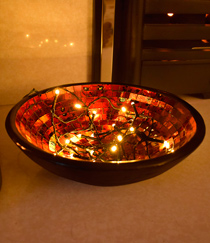
- Store and Organise
- Baskets & Buckets
- Bookends
- Decorative Storage
- Jewellery Storage
- Moneyboxes
- Spectacle Stands & Cases
- Wall Hooks
- Wooden Boxes
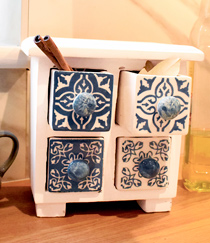
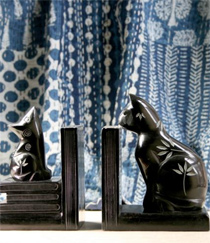
- Decor/Garden
- Hangings
- Bunting & Prayer Flags
- Decorative Hangings
- Dreamcatchers
- Glass Hangings
- Hammocks and Swings
- Inspirational Banners / Hangings
- Metalacycle - Metal Plaques
- Paper Hangings
- Planters & Sikas
- Spinners
- Suncatchers
- Wall Hangings
- Windchimes & Bells
- Mood Setters
- Incense Holders & Boxes
- Lanterns & Lampshades
- Oil Burners
- Painted Candles
- Salt Lamps
- T-lite Candles
- T-lite & Candle Holders
- Ornaments
- Animal & Bird Figures
- Buddhas
- Crystal / Gemstone Trees
- Duck It! - Wooden Ducks
- Let's Boogie! - Metal Animals
- Models & Ornaments
- Orgone Pyramids
- Garden
- Bunting & Prayer Flags
- Bird/Bug/Animal Houses/Feeders
- Garden Ornaments
- Hammocks and Swings
- Planters, Planting & Gloves
- Suncatchers
- Windchimes & Bells
- Wood Spinners
- Spiritual
- Fragrance
- Bodycare
- Fashion
- ACCESSORIES
- Canvas and Leather Bags and Purses
- Face Masks
- Fans & Mirrors
- Fashion Bags & Purses
- Hair Accessories
- Shopping / Tote Bags
- CLOTHING
- Aprons
- GENKI Upcycled Clothing
- Jackets, Shirts, Trousers, Dresses
- Scarves, Hats, Gloves
- Socks - Bamboo
- Socks - Recycled Cotton & Polyester
- JEWELLERY
- Bracelets & Bangles
- Brooches
- Earrings
- Necklaces & Pendants
- Rings
- Gemstone Jewellery
- Men's / Unisex Jewellery
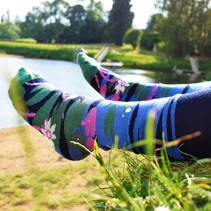

- Gift
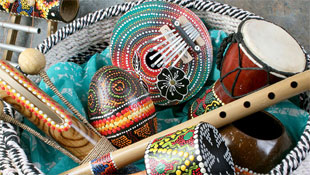
- Gift Ideas
- Animal Mugs, Eggcups, Salt & Pepper Sets
- Bicycle Accessories
- Books & Tarots
- Copper Bottles, Cups, Jugs
- Crystals
- Eco Soft Toys
- Games & Puzzles
- Keyrings, Magnets & Pencils
- Lunch Boxes & Utensils
- Masks
- Musical Instruments
- Notebooks & Journals
- Pebbles & Paperweights
- Reusable Travel Cups
- Singing Bowls
- Tape Measures
- Worry Dolls & other Guatemalan Products
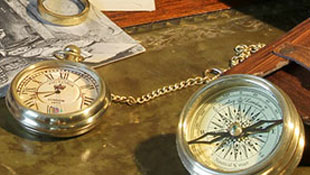
- Gifts For
- Children
- The Chocolate Lover
- The Environmenatalist
- The Steampunk/Larper
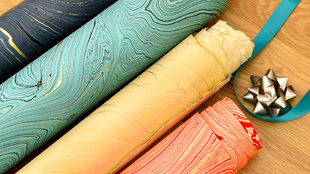
- Complete the Gift
- Gift Bags, Boxes & Wrap
- Greetings Cards
- Eco
- SUSTAINABLE / ZERO WASTE
- Bamboo Gifts & Decor
- Bamboo Socks
- Bodycare
- Coconut Homeware & Decor
- Copper Bottles, Cups, Jugs
- Cotton Gift Wrap, Napkins, Accessories
- Grass, Hemp, Raffia, Palm, Jute Homeware
- Handmade Paper Cards
- Handmade Paper Gift Wrap, Bags, Boxes
- Handmade Paper Stationery & Mobiles
- Handmade Soap, Shampoo, Bodycare Bars
- Jute Bags
- Kitchen, Bathroom, Cleaning
- Rice Husk Travel Tea/Coffee Cups
- Wood - Albesia
- Wood - Driftwood, Twigs
- Wood - Jempinis
- Wood - Mango
- Wood - Raintree
- Wood - Sustainably Sourced China Fir
- RECYCLED / UPCYCLED
- Bike Chain/Parts/Tools: Gifts
- Brass: Decor
- Computer Parts: Decor & Gifts
- Crayon: Homeware & Gifts
- Eco Soft Toys from Recycled Plastic Bottles
- Glass: Homeware & Jewellery
- Leather: Homeware
- Paper: Homeware
- Plastic: Bags & Homeware
- Scrap Metal: Decor
- Shrimp Net: Jewellery
- Textile: Bags & Purses
- Textile: Clothing
- Textile: Home Decor
- Textile: Homeware
- Textile: Jewellery
- Textile: Scarves
- Tyre: Homeware
- A BETTER WORLD
- Bike It
- Save Our Planet
- Wildlife & Nature
- Christmas
- Offers
- Quick Order
- Main Categories
- New/Back In
- Homeware
- Home & Garden Decor
- Home Fragrance
- Body & Hair Care
- Fashion & Accessories
- Gift Ideas
- Children
- Eco/Zero Waste
- How Can We Help?
- News
- Ordering From Us
- Contact/Register
- Catalogue
- FAQ
- Terms & Conditions
- Privacy Policy
- Not Wholesale?
- Our Aims & Ethics
- Our Aims
- About us
- Fair Trade
- Ethical Trade
- Recycled/Upcycled
- Eco-friendly/Sustainable
- Producers
- Environmental Policy
- Sustainability Report
- Packaging Policy
- Climate Crisis
- Charity Donations
- Company Details
- Shared Earth UK Ltd
- 1 Minster Gates
- York YO1 7HL
- United Kingdom
- Company number: 07301731
- VAT Reg Number: GB 100 578 544
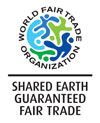
Copyright © 2024
